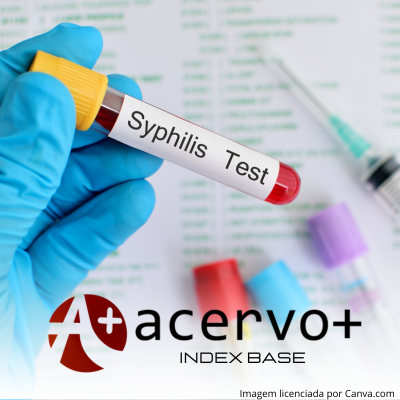Sífilis gestacional: epidemiologia, patogênese e manejo
##plugins.themes.bootstrap3.article.main##
Resumo
Objetivo: Revisar de forma clara e didática a epidemiologia, patogênese e manejo da sífilis gestacional (SG). Revisão bibliográfica: A sífilis gestacional é uma doença bacteriana sexualmente transmissível causada pelo Treponema Pallidum que afeta mulheres gravidas, quando não é tratada corretamente com, no máximo, trinta dias antes do parto, pode evoluir para transmissão vertical, causando sífilis congênita. É uma doença que atinge cerca de 1 milhão de gestantes todos os anos em todo o mundo e sua evolução pode cursar com aborto espontâneo, baixo peso as nascer, prematuridade, neurossífilis, malformações ósseas entre outras alterações que podem alterar significativamente a qualidade de vida do bebê. O tratamento da SG é feito preferencialmente com Penicilina G Benzatina 2,4 milhões de unidades intramuscular e a dose depende da fase da doença na qual a gestante se encontra. Considerações finais: A SG é uma patologia que requer rápido diagnóstico e início imediato do tratamento a fim de evitar a progressão da doença para suas formas mais graves e sífilis congênita.
##plugins.themes.bootstrap3.article.details##
Copyright © | Todos os direitos reservados.
A revista detém os direitos autorais exclusivos de publicação deste artigo nos termos da lei 9610/98.
Reprodução parcial
É livre o uso de partes do texto, figuras e questionário do artigo, sendo obrigatória a citação dos autores e revista.
Reprodução total
É expressamente proibida, devendo ser autorizada pela revista.
Referências
2. BRANDENBURGER D e AMBROSINO E. The impact of antenatal syphilis point of care testing on pregnancy outcomes: A systematic review. PLoS One, 2021; 16(3): e0247649.
3. CAMPBELL F, et al. Interventions for the prevention of spontaneous preterm birth: a scoping review of systematic reviews. BMJ Open, 2022; 12(5): e052576.
4. CURCIO AM, et al. Neurologic infections during pregnancy. Handb Clin Neurol, 2020; 172: 79–104.
5. de BRITO PINTO TK, et al. Clinical protocols and treatment guidelines for the management of maternal and congenital syphilis in brazil and portugal: analysis and comparisons: a narrative review. Int J Environ Res Public Health, 2022; 19(17): 10513.
6. LIN JS, et al. Screening for syphilis infection in pregnant women: a reaffirmation evidence update for the u. S. Preventive services task force. In: Rockville (MD): Agency for Healthcare Research and Quality (US), 2018.
7. ROBERTS CP, et al. Alternative treatments for syphilis during pregnancy. Sex Transm Dis, 2019; 46(10): 637–40.
8. ROCHA AFB, et al. Complications, clinical manifestations of congenital syphilis, and aspects related to its prevention: an integrative review. Rev Bras Enferm, 2021; 74(4): e20190318.
9. SALOMÈ S, et al. Congenital syphilis in the twenty-first century: an area-based study. Eur J Pediatr. ,2023; 182(1): 41–51.
10. SILVA GCB e RODRIGUES FF. Fisiopatologia da sífilis congênita. Revista científica multidisciplinar núcleo do conhecimento, 2018; 10(04): 122-136.
11. SINGH T, et al. Vaccines for perinatal and congenital infections-how close are we? Front Pediatr., 2020; 8: 569.
12. SMULLIN C, et al. A narrative review of the epidemiology of congenital syphilis in the united states from 1980 to 2019. Sex Transm Dis., 2021; 48(2): 71–8.
13. TORRES PMA, et al. Factors associated with inadequate treatment of syphilis during pregnancy: an integrative review. Rev Bras Enferm., 2022; 75(6): e20210965.
14. TORRONE EA e MILLER WC. Congenital and heterosexual syphilis: still part of the problem. Sex Transm Dis., 2018; 45(9S Suppl 1): S20–2.
15. TRINH T, et al. Syphilis management in pregnancy: a review of guideline recommendations from countries around the world. Sex Reprod Health Matters, 2019; 27(1): 69–82.
16. WALTMANN A, et al. Nonviral sexually transmitted infections in pregnancy: current controversies and new challenges. Curr Opin Infect Dis., 2021; 34(1): 40–9.
17. WU S, et al. Revalence of human immunodeficiency virus, syphilis, and hepatitis B and C virus infections in pregnant women: a systematic review and meta-analysis. Clin Microbiol Infect., 2023; S1198-743X(23): 00116-7.

